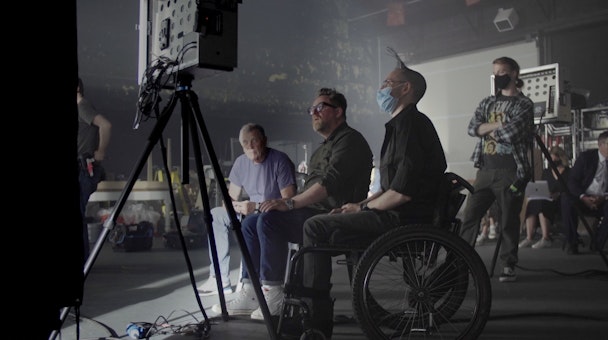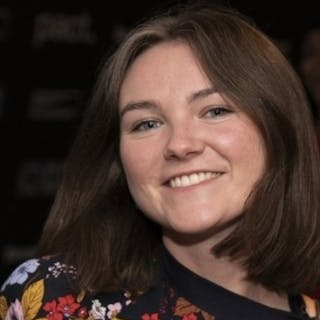Agencies need to involve people with a disability from get-go, urge campaigners
As part of The Drum’s Deep Dive into Marketing and the Marginalized, we look at how the industry can make ads that are more accessible.

Irwin Mitchell’s ‘The Human Touch’ campaign was nearly entirely crewed by disabled talent
Marketers need to include insights from people with a disability in the initial planning of a campaign if the industry is serious about improving representation, according to disability campaigners.
“At the point an agency would go out and gather customer insights, that’s when you should be engaging with the disabled community because they are your customer base too,” says Alison Kerry, head of communications at disability equality group Scope.
It is Scope’s view that the ad industry is still lagging behind in representation of people with a disability, both in ads and in its workforce, with a worrying eight out of 10 disabled people reporting they don’t feel represented in the media.
There are 14.1 million people in the UK with a disability, equaling a buying power worth around £249bn called ‘the purple pound.’ Kerry says that “advertisers are doing a disservice to themselves by excluding disabled people ... you are locking out a huge part of your customer base.”
Kerry urges marketers to incorporate disabled people in ads in “incidental ways” and avoid tropes such as “disabled people being seen as inspirational or overcoming diversity.” Too often marketers fall foul of “inspiration porn,” which only serves to perpetuate misconceptions, she says.
Kerry referenced the likes of Maltesers’s 2017 campaign and more recently a Sky Q ad that featured a boy with an amputated leg as case studies to follow.
Seeking advice or collaboration with Scope or other disabled groups on a campaign can ensure an ad is positively reflecting the voices of disabled consumers. Virgin Media tied with Scope in 2020 to launch #WorkWithMe, for example.
“Not being represented continues to fuel misunderstanding. We know familiarity can break down barriers and help improve the public’s attitude,” she adds.
An agency view
Jason Fletcher, executive creative director at Dentsu agency Merkle B2B, calls on agencies to include differently-abled voices in the client brief.
“The whole process needs to change,” Fletcher says. “We need to bring people in from the get-go, that’s the next step.”
In Fletcher’s view, not a lot has changed for disabled representation in adland despite making “some good strides forward” on screen. “All agency networks are at the very beginning of their journeys in this space, most aren’t even one or two steps in,” he says. “We aren’t coming together enough as an industry to make any big strides.”
Merkle B2B assembled the industry’s nearly all-disabled production team for its Irwin Mitchell ‘The Human Touch’ campaign in September. He says it was difficult crewing up as “disabled creatives are incredibly hard people to find as they don’t have a voice or a platform in this industry yet – they are hidden in these small spaces.”
The Irwin Mitchell contract was Merkle B2B’s first project that focused on disability inclusion, Fletcher says. “We will speak to any agency that wants to do this because if we can share the knowledge, it will make it so much easier for everybody.”
In a bid to facilitate connections between agencies and creatives, Merkle B2B is also planning to launch a digital platform for disabled talent to upload their work and provide a networking space.
View from working in the ad industry
Editor Amy Daneel only recently felt comfortable “outing” herself as being differently abled after struggling for 20 years in an industry where she had no trust in her employers to accommodate her needs.
Daneel, whose commercial credits include Walkers, Cadbury and PureGym, has complex PTSD, which means she needs a safe working environment with flexible hours and can’t be put under time pressure.
“As someone who is not good with boundaries, that puts you in a vulnerable position as a young person living with complex PTSD in an industry with a toxic culture,” she says. “The ad industry will take as much as you can give.”
She calls on agency leaders to create a culture of inclusion and encouragement for disabilities to be out in the open. “I had to put myself and [my] career on the line to be open about my disability,” Daneel says. “The onus shouldn’t be on the person that is differently abled.”
When you join a company and see a harmonized workforce it makes you want to hide your disability, she says. “The rate of change feels too slow.”

